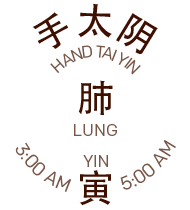
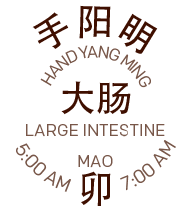
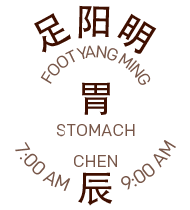
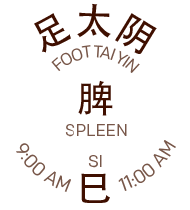
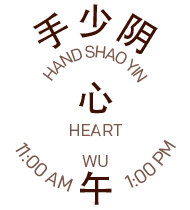


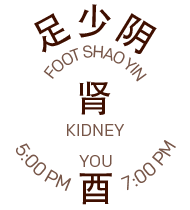
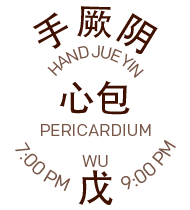
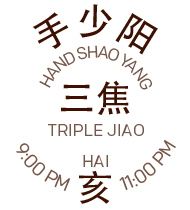
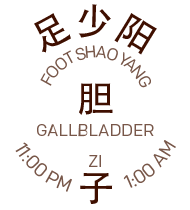
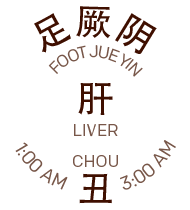
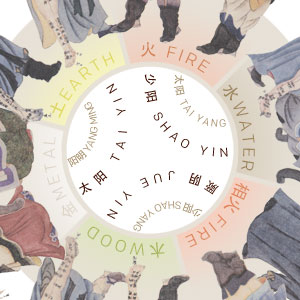
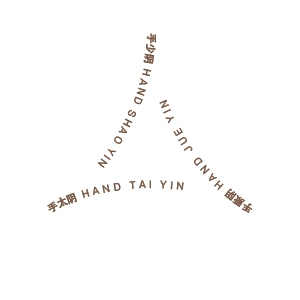
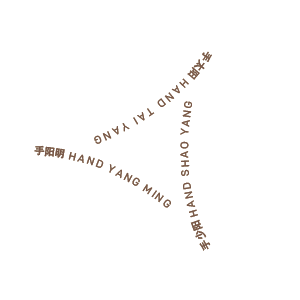
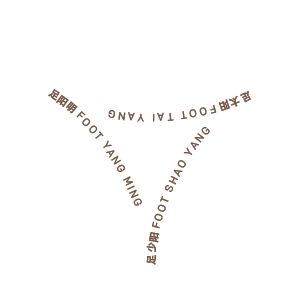
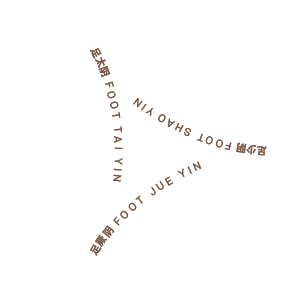
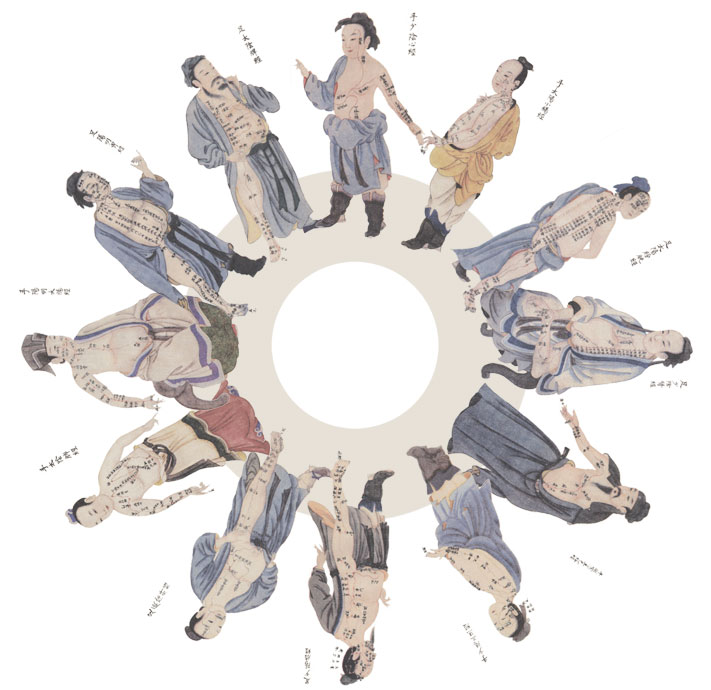
The channels shown above are labeled and sequenced according to the 经脉篇 (Channel Pulse Chapter) of 黃帝內經·灵枢 (Chinese Emperor's Classic·Simple Questions). Although this configuration is considered standard, earlier versions exist. (Many of these versions list a fewer number of channels, different naming conventions, a different order, and describe the channels as flowing in a different direction). Listed below are two such instances:
| 足臂十一温灸经 Leg (&) Arm 11 Warm Moxa Channels |
阴阳十一脈灸经 Yin Yang 11 Pulse Moxa Channels |
《灵枢·经脈篇》 Ling Shu·Channel Pulses Chapter |
|---|---|---|
| 足泰阳温 Leg Tai Yang Warm |
足鉅阳脈 Leg Ju (Great) Yang Pulse |
肺手太阴之脈 Lung Hand Tai Yin Pulse |
| 足少阳温 Leg Shao Yang Warm |
(足)少阳脈 (Leg) Shao Yang Pulse |
大肠手阳明之脈 Large Intestine Hand Yang Ming Pulse |
| 足阳明温 Leg Yang Ming Warm |
(足)阳明脈 (Leg) Yang Ming Pulse |
胃足阳明之脈 Stomach Foot Yang Ming Pulse |
| 足少阴温 Leg Shao Yin Warm |
肩脈 (同"臂泰阳") Shoulder Pulse (Arm Tai Yang) |
脾足太阴之脈 Spleen/Pancreas Foot Tai Yin Pulse |
| 足泰阴温 Leg Tai Yin Warm |
耳脈 (同"臂少阳") Ear Pulse (Arm Shao Yang) |
心手少阴之脈 Heart Hand Shao Yin Pulse |
| 足帣(厥)阴温 Leg Jue Yin Warm |
齿脈 (同"臂阳明") Tooth Pulse (Arm Yang Ming) |
小肠手太阳之脈 Small Intestine Hand Tai Yang Pulse |
| 臂泰阴温 Arm Tai Yin Warm |
足太陰脈 Leg Tai Yin Pulse |
膀胱足太阳之脈 Bladder Foot Tai Yang Pulse |
| 臂少阴温 Arm Shao Yin Warm |
(足)厥陰脈 (Leg) Jue Yin Pulse |
肾足少阴之脈 Kidney Foot Shao Yin Pulse |
| 臂泰阳温 Arm Tai Yang Warm |
(足)少陰脈 (Leg) Shao Yin Pulse |
心主手厥阴心包络之脈 Heart Directs (Pericardium) Hand Jue Yin Pulse |
| 臂少阳温 Arm Shao Yang Warm |
臂鉅阴脈 Arm Ju (Great) Yin Pulse |
三焦手少阳之脈 San Jiao Hand Shao Yang Pulse |
| 臂阳明温 Arm Yang Ming Warm |
臂少阴脈 Arm Shao Yin Pulse |
胆足少阳之脈 Gallbladder Foot Shao Yang Pulse |
| 肝足厥阴之脈 Liver Foot Jue Yin Pulse |
The first column lists the pathways as they appear in 脈經 (Mai Jing) (the earliest version of this set still in existence). The channels are labeled 足臂十一溫灸經 (Leg (&) Arm 11 Warm Moxa Channels).
In this iteration, the channels follow the labelling formula: limb, yin-yang property, warm (eg. 足泰陽溫: foot, tai yang, warm).
The channels are arranged first by limb and then by yin-yang property (leg yang channels appear first, followed by leg yin channels, arm yin channels, and finally, arm yang channels).
The second column lists pathways as they appear in 針灸甲乙經 (Acupuncture-Moxibustion First-Second Classic). Here, the set is labeled: 陰陽十一脈灸經 (Yin Yang 11 Pulse Moxa Channels).
In this iteration, the channels follow the labelling formula: limb, yin-yang property, pulse (eg. 足鉅陽脈: foot, ju (great) yang, pulse.
The foot/leg character is omitted in four of these channels (they were understood to belong to the lower limb), and the arm character was only used for the upper yin channels (the three upper yang channels were labelled shoulder mai, ear mai, and tooth mai rather than the respective arm tai yang, arm shao yang and arm yang ming).
While the naming convention continued to follow that of earlier texts (as seen above), the channel order is now arranged first by yin-yang property and only subsequently by limb (leg yang channels appear first, followed by arm yang channels, leg yin channels, and finally, arm yin channels).
The third column lists pathways as they appear in the 靈樞 (Spiritual Pivot) section of 黃帝內經 (Chinese Emperor's Classic). The set is labeled 經脈 (Channel Pulses).
In this iteration, there are twelve channels, each of which is now connected to an organ system. The labeling formula is now: organ system, limb, yin-yang property, channel (eg. 肺手太陰經: lung, hand, tai yin, channel).
The channel order is now completely different, and follows the circulation order seen in the diagram above.